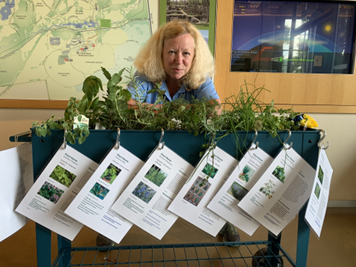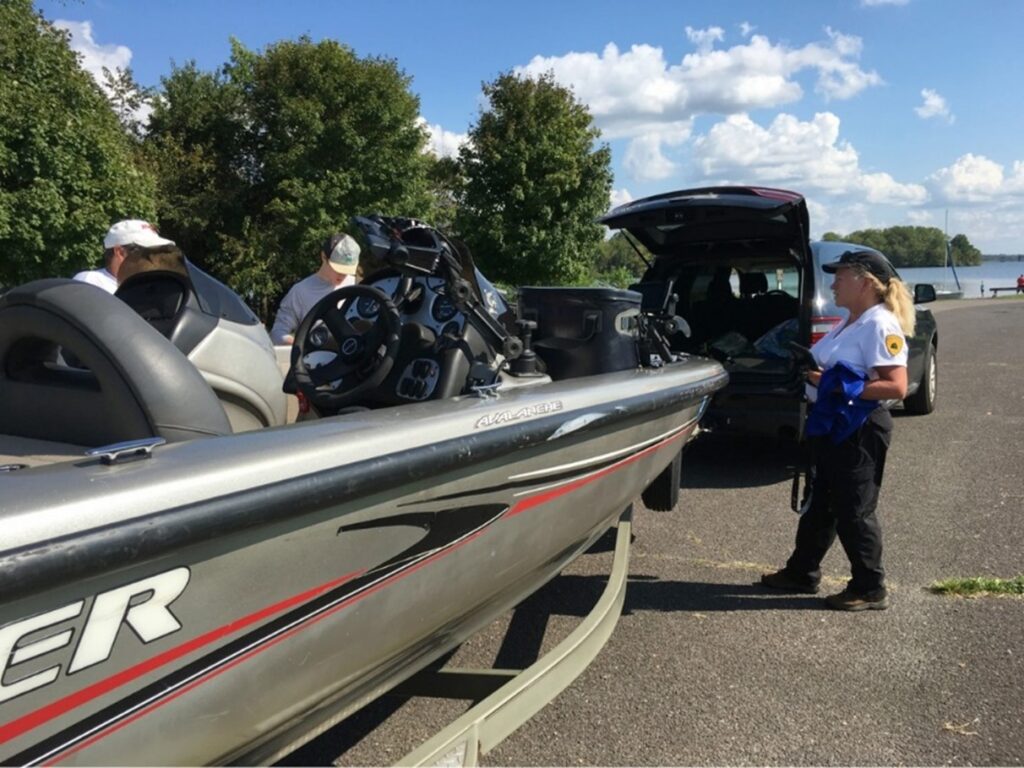Main Content
My Journey from Rutgers Environmental Steward to Boat Steward – Ann Cucchiara RES 2019 Cert 2020
It was back in 2019 that I decided to enroll in the Rutgers Environmental Steward Program being offered at my favorite outdoor playground – Duke Farms. As a recently retired schoolteacher, I wanted to learn more about the negative, as well as positive impacts humans make on the environment and climate. The weekly seminars offered by the Rutgers Environmental Steward Program throughout the spring helped me in both my environmental stewardship activities and in converting our own property to a more ecologically diverse and friendly habitat.
The certification project I completed centered on Native Pollinator Plants in our central Jersey region. After visiting several nurseries, parks, and nature preserves, I collated a list of the best plants to attract pollinators and sustain a biodiverse environment. I created a mobile plant unit containing living samples, photos, and information for the public. This mobile unit was moved around several places on Duke Farms property during high visitation days. This project was completed in 2019 and demonstrated until the pandemic shutdown in March, 2020.

While researching the types of native plants that support pollinators, I was struck by the sheer number of invasive plants that have crept into our landscapes. I realized that this was a wholly larger issue that needed to be addressed by environmental stewards. My Monday Monitor and Maintain crew at Duke Farms was constantly ripping out false indigo, nonnative honeysuckle, burning bush, stilt grass, and countless other invasive species. It is difficult to control these plants without herbicide, but we know that poses another environmental risk. Our task to try to eradicate these invasives depended solely on physical persistence every week. My Environmental Steward certification project was a start to the process of converting landscapes from invasive to native plants, but it wasn’t enough. There had to be a way to disseminate information and make the public even more aware.
It was in March 2021 that I stumbled upon a seasonal job opportunity with NJ State Parks and Forestry, a division of the DEP, in conjunction with the New jersey Water Supply Authority. These organizations came together to create a new position – that of a Boat Steward. This was a unique opportunity to help prevent the influx of aquatic invasive species (AIS) into our waterways. I was hired to do the work of inspecting incoming and outgoing boats for AIS and I have been doing it every summer at Spruce Run Recreation Area since 2021. In the past four years, boaters and fishermen have become so much more aware of the importance of having a clean boat/equipment when going from one body of water to another. Many now know about the devastating effects of invasive species such as hydrilla, zebra mussels, water milfoil, water chestnut, brittle naiad, among others. Because of what I learned through the Rutgers Environmental Steward Program and the completion of my certification project, I can inform the public about the importance of supporting native pollinator plants; recognizing and eradicating invasive species on both land and water; and creating biodiversity.
